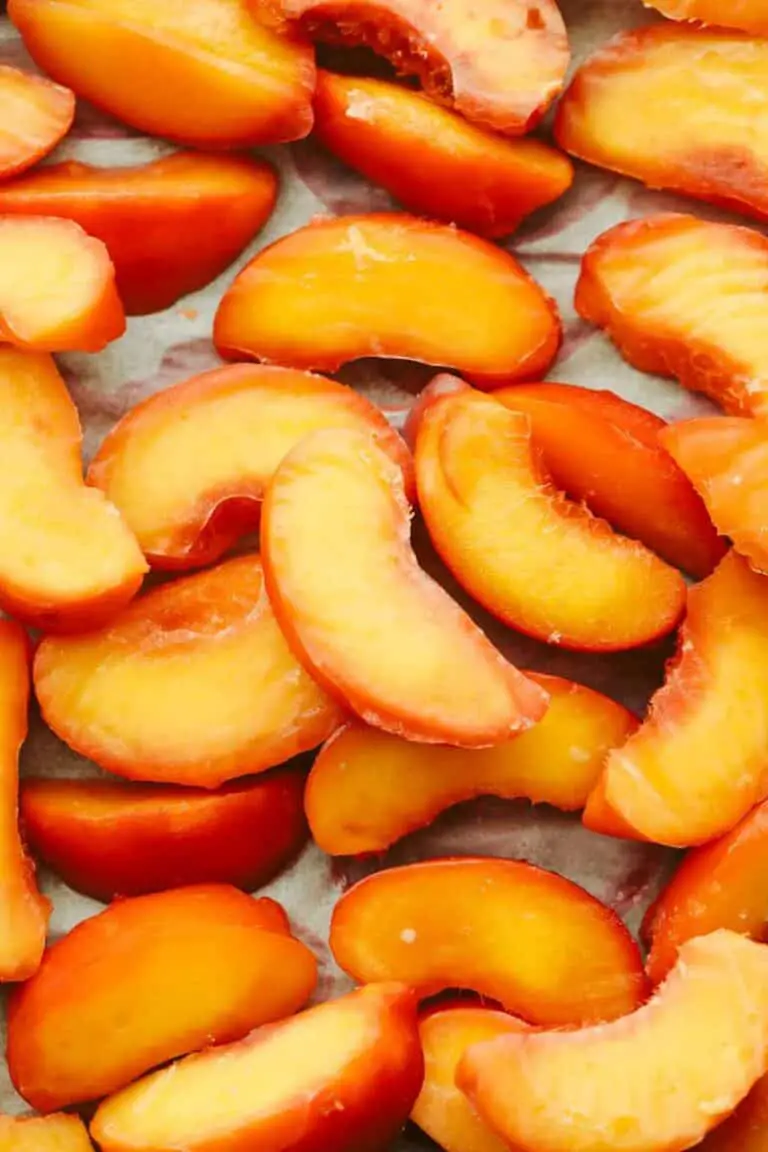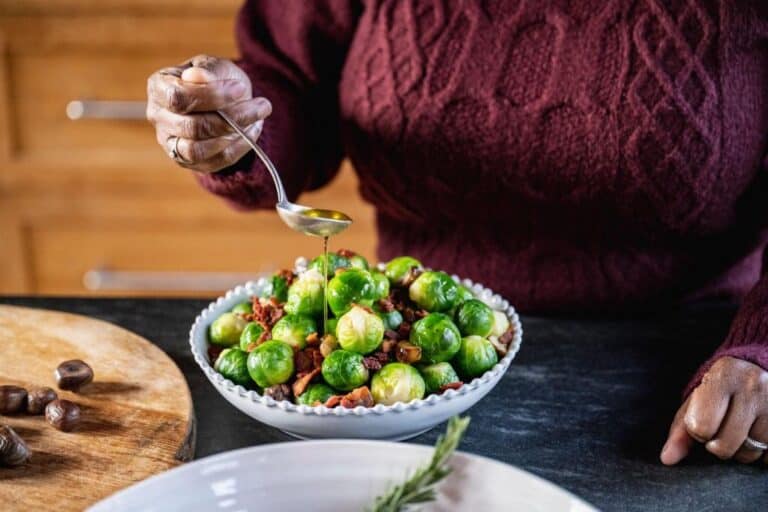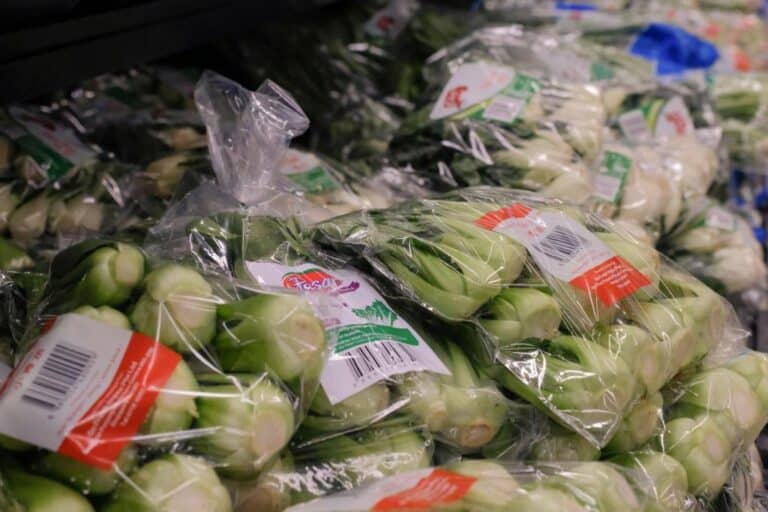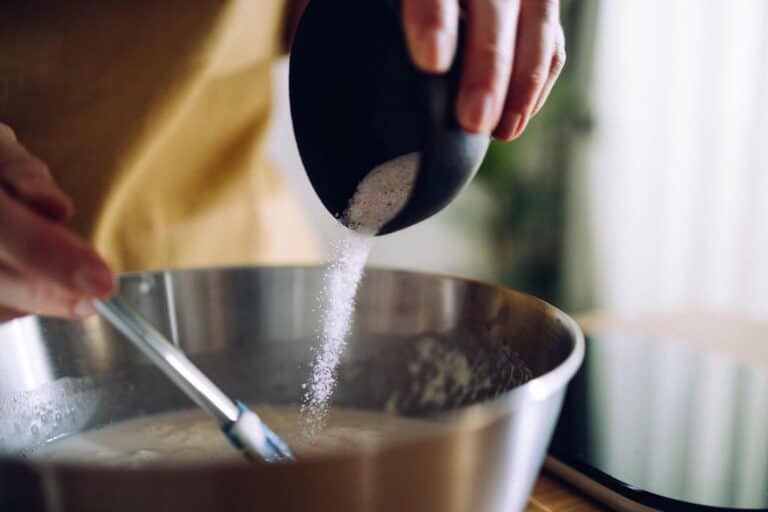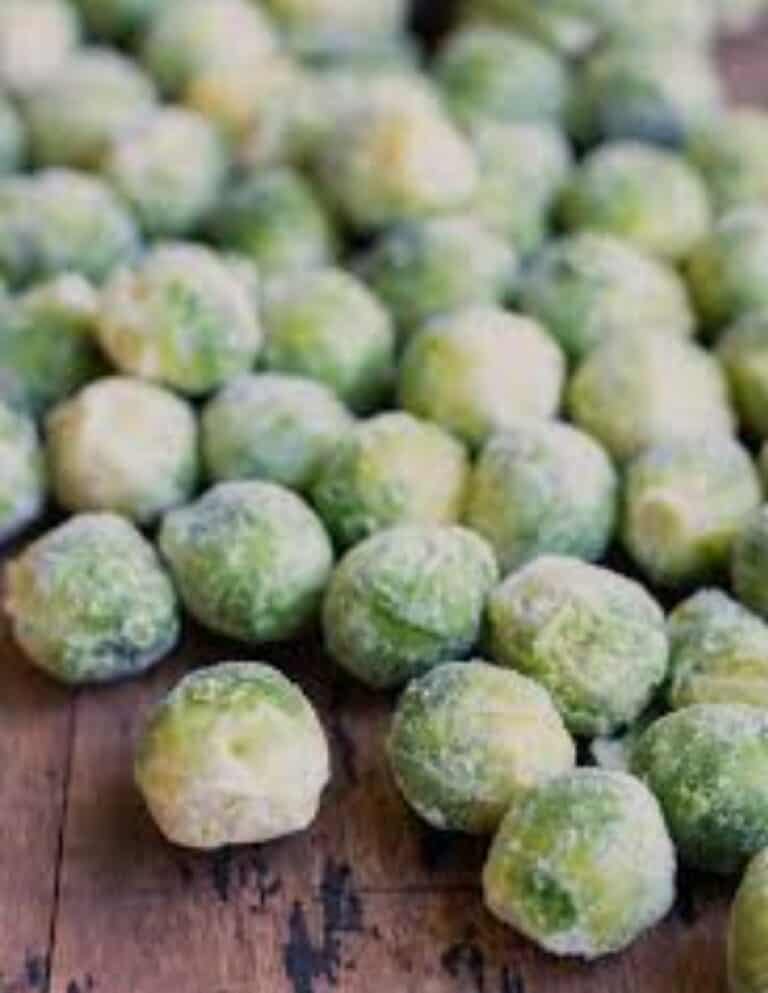How Do You Get the Bitterness Out of Brussel Sprouts
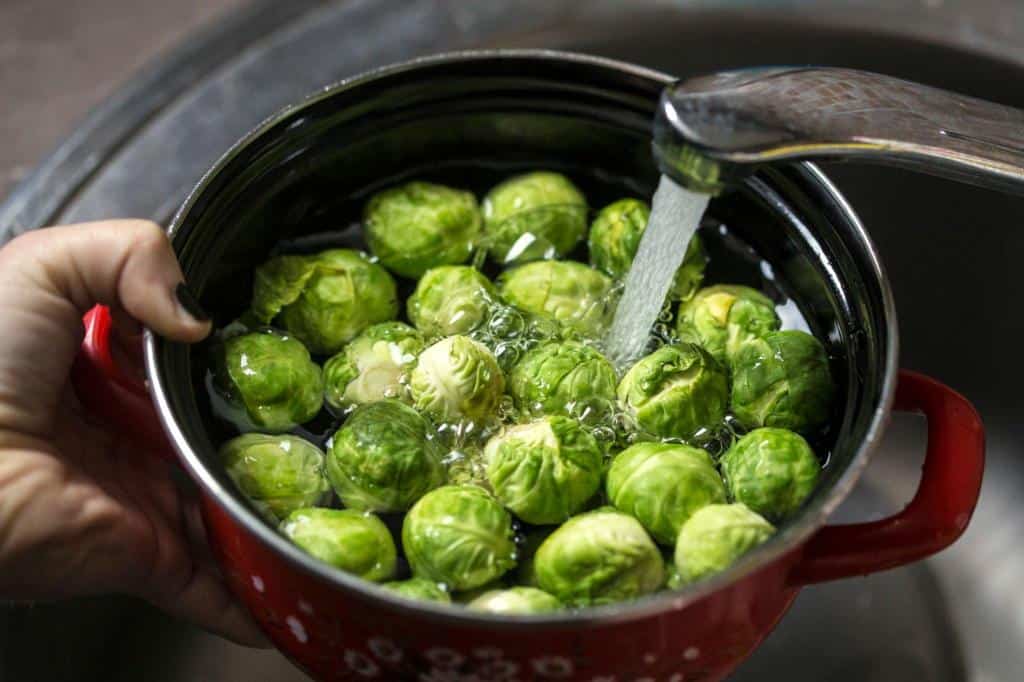
Are you a Brussels sprouts enthusiast, eagerly diving into a plate of these miniature cabbages only to be met with an overpowering bitterness? Fear not! We’ve got you covered with the ultimate guide on how to tame that bitter beast and unlock the true potential of Brussels sprouts.
Whether you’re a seasoned cook or just starting to explore the world of culinary adventures, removing the bitterness from Brussels sprouts can be a game-changer in elevating their taste to new heights. In this article, we’ll delve into a variety of techniques that will transform these vibrant green gems into delectable morsels of flavor.
From blanching to roasting, marinating to sautéing, we’ll uncover the secrets to creating Brussels sprouts dishes that will make your taste buds dance with delight. So get ready to bid farewell to bitterness and embark on a journey of culinary discovery with Brussels sprouts as your trusty companion!
Introduction to Brussels Sprouts
Brussels sprouts, with their miniature cabbage-like appearance, have gained popularity as a nutritious and versatile vegetable. Brussels sprouts, scientifically known as Brassica oleracea var. gemmifera, belong to the cruciferous vegetable family.
These sprouts are believed to have originated in ancient Rome, with their modern cultivation dating back to the 13th century in Belgium, which is where their name originated. Today, Brussels sprouts are grown in various parts of the world and are prized for their distinctive flavor and health benefits.
Nutritional Value and Health Benefits of Brussels Sprouts
Before we delve into reducing the bitterness, let’s take a moment to appreciate the nutritional value and health benefits of Brussels sprouts. These miniature vegetables are packed with essential vitamins, minerals, and dietary fiber.
They are an excellent source of vitamin C, vitamin K, and folate, while also providing a healthy dose of vitamin A, potassium, and antioxidants. Incorporating Brussels sprouts into your diet can support your immune system, promote healthy digestion, and contribute to overall well-being.
Understanding the Bitterness in Brussels Sprouts
To address the bitterness issue, it’s essential to understand what causes it in the first place. Brussels sprouts contain natural chemical compounds known as glucosinolates. When these compounds are broken down during cooking, they release sulfur-based compounds called isothiocyanates. These isothiocyanates contribute to the characteristic bitterness of Brussels sprouts.
Apart from the chemical composition, several factors influence the bitterness levels in Brussels sprouts. Varietal differences, growing conditions, maturity of the sprouts, and even cooking methods can affect the intensity of bitterness. Understanding these factors can help you employ the right techniques to reduce bitterness while preserving the nutritional value.
How Do You Get the Bitterness Out of Brussel Sprouts?
If you’re faced with Brussels sprouts that have turned out bitter, don’t worry! There are a few effective methods you can employ to help remove or reduce the bitterness and make these miniature cabbages more enjoyable.
Below are 7 proven methods to reduce bitterness of your Brussel sprouts without doing alteration in its taste and texture.
1. Blanching as a Method to Reduce Bitterness
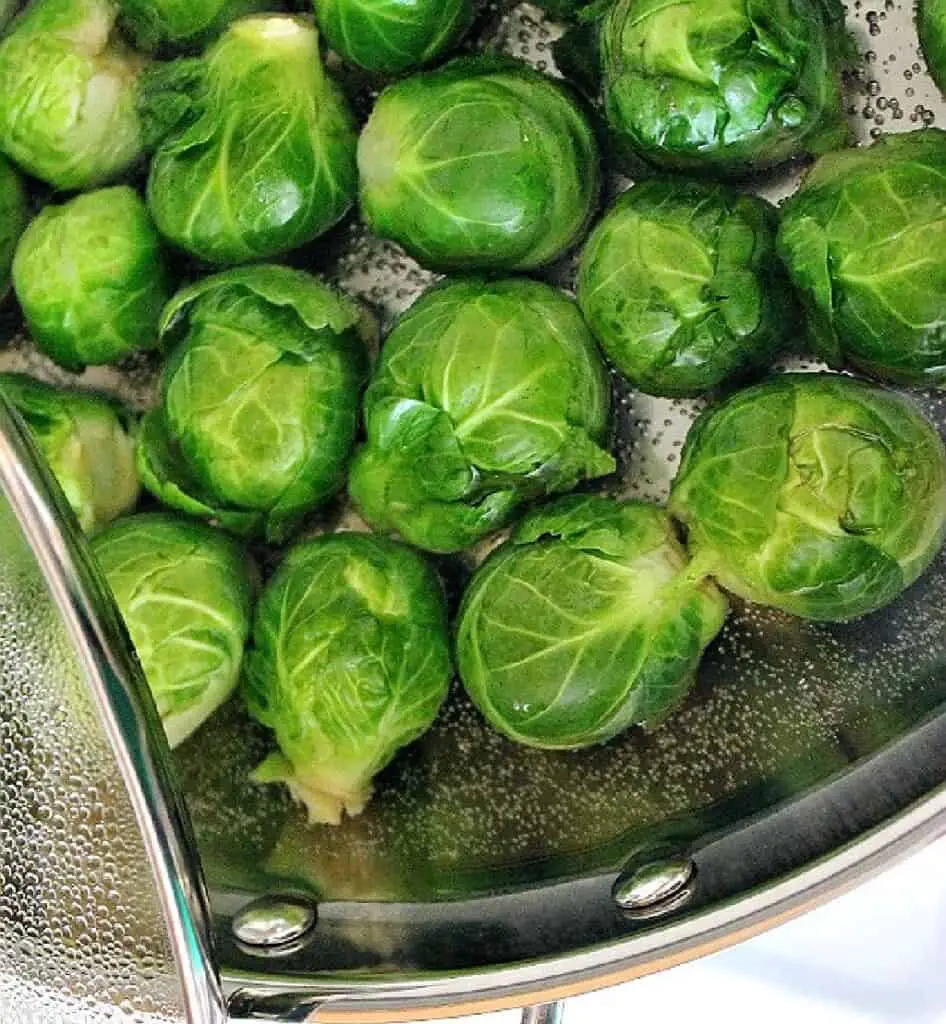
Blanching is a popular technique that can help diminish the bitterness in Brussels sprouts. This process involves briefly immersing the sprouts in boiling water, followed by an immediate transfer to an ice bath to halt the cooking process. Blanching not only reduces bitterness but also helps retain the vibrant green color and crisp texture of the sprouts.
To blanch Brussels sprouts, follow these simple steps:
- Bring a large pot of water to a rolling boil.
- Prepare an ice bath by filling a large bowl with ice and cold water.
- Trim the stem end of each Brussels sprout and remove any wilted outer leaves.
- Carefully place the sprouts into the boiling water and cook for 2-3 minutes.
- Using a slotted spoon or tongs, transfer the blanched sprouts into the ice bath.
- Allow the sprouts to cool completely in the ice bath for a few minutes.
- Once cooled, remove the sprouts from the ice bath and pat them dry with a kitchen towel.
Blanching Brussels sprouts not only helps reduce bitterness but also makes it more versatile for various cooking methods.
2. Roasting Brussels Sprouts to Enhance Flavor
Another delightful way to bring out the best flavors in Brussels sprouts while minimizing bitterness is through roasting. Roasting helps caramelize the natural sugars present in the sprouts, resulting in a delightful nutty flavor and a slightly crispy texture. To roast Brussels sprouts to perfection, follow these tips and techniques:
- Preheat your oven to 400°F (200°C) and line a baking sheet with parchment paper.
- Trim the stem end of each Brussels sprout and remove any discolored outer leaves.
- Cut larger sprouts in half for more even cooking.
- In a bowl, toss the sprouts with olive oil, ensuring they are coated evenly.
- Season with salt, pepper, and any desired herbs or spices. Garlic powder, paprika, or balsamic vinegar can add additional depth of flavor.
- Arrange the sprouts in a single layer on the prepared baking sheet.
- Roast Brussels sprout for 20-25 minutes, or until the sprouts are golden brown and tender when pierced with a fork.
- Give the sprouts a gentle toss halfway through cooking to ensure even browning.
- You can roast Brussels sprouts ahead of time 1 or 2 days to fully prepare them when you need to cook them.
Roasting Brussels sprouts brings out their natural sweetness and adds a delightful caramelized flavor, making them an irresistible side dish or a tasty addition to salads and grain bowls.
3. Marinating Brussels Sprouts for a Milder Taste
Marinating Brussels sprouts before cooking can also help reduce their bitterness while infusing them with delicious flavors. The acidic nature of marinades helps to neutralize the bitterness and adds a tangy twist to the sprouts. Here are a few tips for marinating Brussels sprouts:
- In a bowl, whisk together your choice of marinade ingredients. Popular options include lemon juice, balsamic vinegar, soy sauce, or mustard.
- Add the trimmed and halved Brussels sprouts to the marinade, ensuring they are well-coated.
- Cover the bowl or transfer the sprouts and marinade to a resealable plastic bag.
- Allow the sprouts to marinate in the refrigerator for at least 30 minutes or up to overnight for more intense flavor.
- When ready to cook, remove the sprouts from the marinade and discard any excess liquid.
- Proceed with your preferred cooking method, such as roasting, grilling, or sautéing.
Marinating Brussels sprouts not only helps reduce bitterness but also imparts delightful flavors that complement the sprouts’ natural taste.
4. Pairing Brussels Sprouts with Complementary Ingredients
One effective strategy to balance out the bitterness of Brussels sprouts is to pair them with complementary ingredients. By combining flavors that complement the sprouts’ natural taste, you can create a harmonious and well-rounded dish. Here are some ingredient combinations to consider:
| Complementary Ingredients |
| Sweet maple syrup and bacon |
| Tangy balsamic vinegar and honey |
| Creamy goat cheese and toasted almonds |
| Savory garlic and Parmesan cheese |
These pairings provide a delightful contrast to the bitterness and elevate the overall flavor profile of Brussels sprouts.
5. Seasoning and Spices to Counteract Bitterness
Another way to counteract the bitterness of Brussels sprouts is through the clever use of seasoning and spices. Certain herbs and spices can help neutralize bitterness and add depth of flavor to your dishes. Consider incorporating the following seasonings into your Brussels sprouts recipes:
- Garlic powder
- Smoked paprika
- Cumin
- Dried herbs like thyme or rosemary
- Lemon zest
Experimenting with different seasonings allows you to customize the taste of your Brussels sprouts and create a dish that suits your preferences.
6. Other Cooking Methods for Reducing Bitterness
While roasting and sautéing are popular cooking methods for Brussels sprouts, there are alternative techniques that can help minimize bitterness and yield different flavor profiles. Consider these cooking methods:
Steaming
Steaming Brussels sprouts is an excellent way to retain their natural flavors while reducing bitterness. This gentle cooking method preserves the vegetable’s texture and nutrients. Simply place the trimmed Brussels sprouts in a steamer basket over simmering water and steam until they are tender yet still slightly crisp. This method results in a milder taste and is a great option for those who prefer a subtler flavor profile.
Grilling or Sautéing
Grilling or sautéing Brussels sprouts adds a delightful char and smoky flavor that can help mask the bitterness. Cut the sprouts in half, toss them in olive oil, season with salt and pepper, and then grill or sauté until they are tender and slightly caramelized. The high heat transforms the sprouts, infusing them with a delicious smokiness and creating a more complex taste.
7. Culinary Techniques to Serve Brussels Sprouts Without Bitterness
Now that you have mastered the art of reducing bitterness in Brussels sprouts, let’s explore some innovative recipes and presentation ideas to serve these delightful vegetables without a hint of bitterness. Here are some creative ways to incorporate Brussels sprouts into various meals:
- Brussels Sprouts Slaw: Shred or thinly slice Brussels sprouts and toss them with a tangy vinaigrette, such as apple cider vinegar or lemon juice. Add some shredded carrots, dried cranberries, and toasted nuts for a refreshing and crunchy slaw.
- Brussels Sprouts Stir-Fry: Cut Brussels sprouts into thin slices or shred them using a mandoline. Stir-fry them with colorful vegetables like bell peppers, mushrooms, and snap peas. Season with soy sauce, ginger, and garlic for an Asian-inspired dish.
- Brussels Sprouts Hash: Dice Brussels sprouts and sauté them with diced potatoes, onions, and crispy bacon. Season with herbs like thyme or rosemary for a hearty and satisfying brunch option.
- Brussels Sprouts Pizza: Roast Brussels sprouts until they’re crispy and golden brown. Use them as a topping for homemade pizza along with other ingredients like caramelized onions, goat cheese, and a drizzle of balsamic glaze.
- Brussels Sprouts and Quinoa Salad: Combine cooked quinoa with roasted Brussels sprouts, dried cranberries, toasted almonds, and a lemon vinaigrette. This wholesome salad can be enjoyed as a light lunch or a side dish.
- Brussels Sprouts Skewers: Skewer roasted Brussels sprouts with colorful veggies like cherry tomatoes, bell peppers, and red onions. Grill or broil the skewers for a flavorful and visually appealing appetizer.
- Brussels Sprouts Pasta: Sauté shredded Brussels sprouts with garlic and olive oil, then toss them with cooked pasta. Finish with a sprinkle of grated Parmesan cheese and freshly ground black pepper for a simple yet satisfying pasta dish.
By exploring these innovative recipes, you can create exciting and delicious Brussels sprouts dishes that will impress your family and friends while eliminating any lingering bitterness.
Conclusion
Brussels sprouts, despite their initial bitterness, can be transformed into a delicious and flavorful vegetable with the right techniques. Blanching, roasting, and marinating are excellent methods to reduce bitterness and enhance the taste of Brussels sprouts.
By understanding the factors influencing bitterness and exploring different cooking approaches, you can enjoy these nutrient-rich sprouts in a variety of dishes. So, the next time you cook Brussels sprouts, give these techniques a try and savor their delightful flavors.
FAQs
Are Brussels sprouts always bitter?
While Brussels sprouts do have a natural bitterness, proper cooking techniques can help reduce the bitterness and enhance their flavor.
Can I eat Brussels sprouts raw, or do I need to cook them to reduce bitterness?
Brussels sprouts can be enjoyed raw, but cooking them can help mellow out the bitterness and make them more enjoyable.
How do I know if the bitterness in my Brussels sprouts is excessive or normal?
The bitterness level can vary between Brussels sprouts. However, if the bitterness is overwhelming and unpleasant, it may indicate poor quality or overcooking.
Can I freeze Brussels sprouts to preserve their flavor and reduce bitterness?
Freezing Brussels sprouts can help retain their flavor and texture, but it may not significantly reduce bitterness. Blanching Brussels sprouts before freezing can help preserve their quality.
Are there any health benefits associated with the bitterness of Brussels sprouts?
While the bitterness in Brussels sprouts may not directly contribute to their health benefits, the compounds responsible for the bitterness, such as glucosinolates and isothiocyanates, also have potential health-promoting properties. These compounds are known for their antioxidant and anti-inflammatory effects, which can contribute to overall health and disease prevention.
What are some common mistakes to avoid when cooking Brussels sprouts to prevent bitterness?
Pay attention to some mistakes when cooking Brussels sprouts so they taste good and prevent excessive bitterness. You need to avoid overcooking them, as this can intensify the bitterness. Additionally, using fresh and high-quality Brussels sprouts and incorporating various cooking methods can help minimize bitterness.
Can I use any specific cooking utensils or equipment to reduce the bitterness in Brussels sprouts?
While specific utensils or equipment may not directly reduce bitterness, using a sharp knife to trim the sprouts and maintaining proper cooking temperatures can help ensure even cooking and minimize bitterness.
Why are some Brussels sprouts more bitter than others?
The bitterness of Brussels sprouts can vary due to factors like plant genetics, maturity, and growing conditions. Younger sprouts generally have a milder taste, while older ones tend to be more bitter.
Can I blanch Brussels sprouts to reduce their bitterness?
Blanching Brussels sprouts briefly in boiling water can help reduce bitterness. However, it’s essential not to overcook them during the blanching process to avoid a mushy texture.

